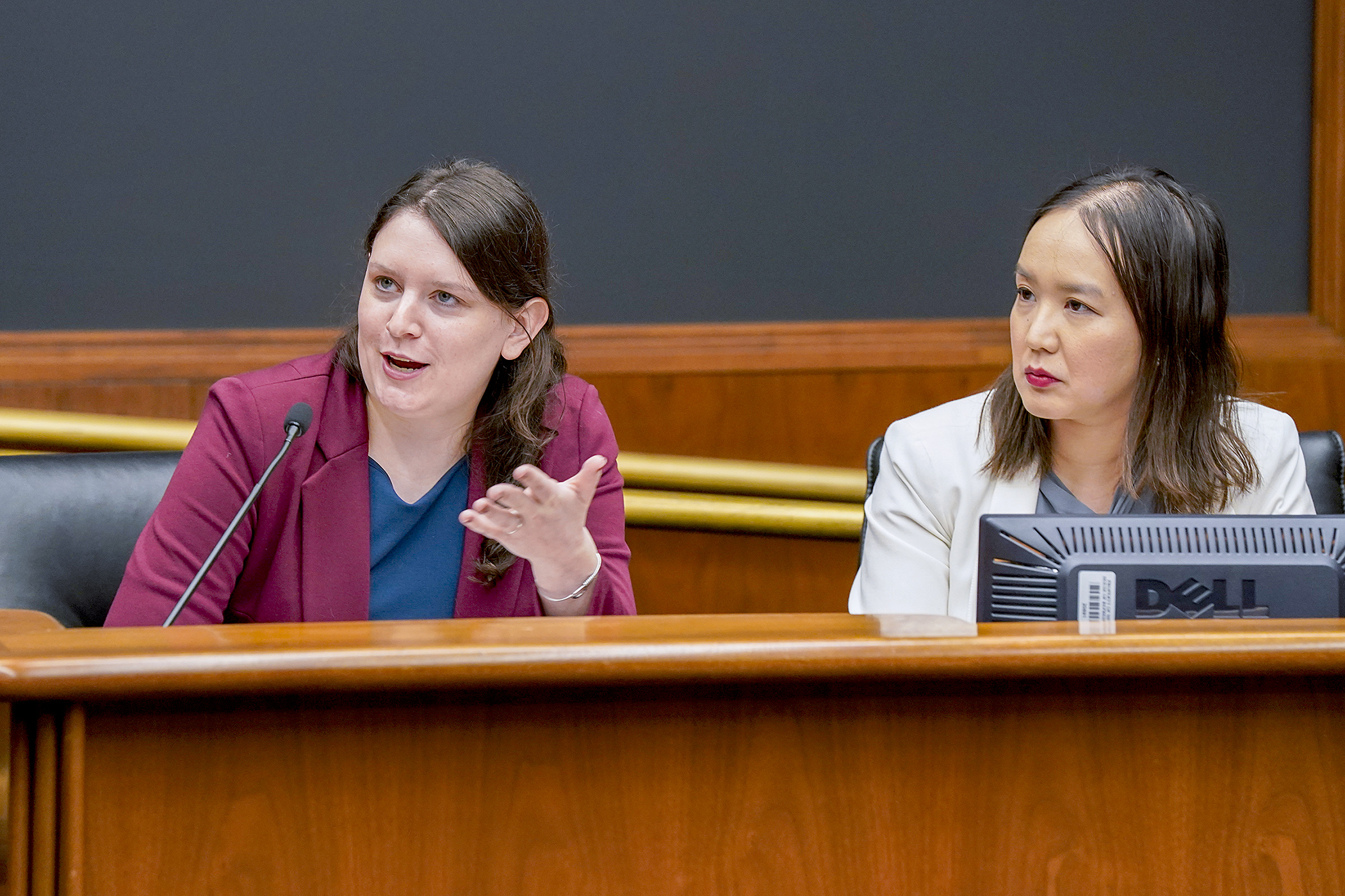Funding boost sought to boot up additional high school computer science courses

Last year, Minnesota had an average of 7,384 open computing jobs each month; the average salary was $105,311.
Without some educational changes those openings will likely not shrink.
Jeff Tollefson, president of the Minnesota Technology Association, said Minnesota ranks last in the country in the percentage of high schools offering computer science coursework. Just 28% of schools offer even one foundational computer science course, leaving Minnesota students at a disadvantage and the state falling further behind.
He was one of several supporters who submitted testimony in favor of HF3492, which would appropriate $8 million in fiscal year 2025 for the Department of Education to expand existing computer science education programs and fund grants for teacher training and recruitment.
Sponsored by Rep. Liz Lee (DFL-St. Paul), the bill was laid over by the House Education Finance Committee Thursday for possible inclusion in a finance bill.
The 2023 legislature took steps to help, establishing a computer science education advancement program, appropriating $1 million for a computer science education supervisor at the Department of Education and a computer science working group to establish a working plan, which Lee said this bill is based on.
Aminah Tezak, a student at Hopkins VirtualEDU, said she was turned away from a coding course because a teacher said her math grades weren’t adequate. She would like to see computer science courses being offered to all students, no matter their math grades.
“Right now, I’m attending a computer science class for just about the first time in my life and I’m having fun,” she said. “When you provide students with opportunities, they take them, and they make the best of them.”
Jennifer Wallace is a library media specialist at Glen Lake Elementary School in Hopkins. She wants to see more opportunities for young students to take computer science classes.
“By starting computer science in elementary school, it is my hope that underrepresented groups — girls, students of color — will be exposed to computer science vocabulary, activities and mindsets,” she said. “Don’t they, too, deserve to learn about the power of computer science?”
Tom Cozzolino, a computer science teacher at New Code Academy, wrote technology is changing at an incredible pace and with advances in artificial intelligence, robotics, automation and more, students will be working with many different technologies daily in both their personal and professional lives.
“It is critically important as educators to help equip students with the skills and mindsets they need to help navigate these changes and be prepared to solve problems that don’t even exist yet.”
Related Articles
Search Session Daily
Advanced Search OptionsPriority Dailies
Speaker Emerita Melissa Hortman, husband killed in attack
By HPIS Staff House Speaker Emerita Melissa Hortman (DFL-Brooklyn Park) and her husband, Mark, were fatally shot in their home early Saturday morning.
Gov. Tim Walz announced the news dur...
House Speaker Emerita Melissa Hortman (DFL-Brooklyn Park) and her husband, Mark, were fatally shot in their home early Saturday morning.
Gov. Tim Walz announced the news dur...
Lawmakers deliver budget bills to governor's desk in one-day special session
By Mike Cook About that talk of needing all 21 hours left in a legislative day to complete a special session?
House members were more than up to the challenge Monday. Beginning at 10 a.m...
About that talk of needing all 21 hours left in a legislative day to complete a special session?
House members were more than up to the challenge Monday. Beginning at 10 a.m...